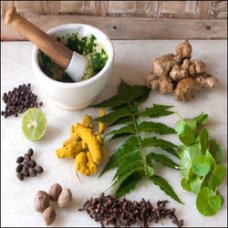Northerner
Admin (Retired)
- Relationship to Diabetes
- Type 1
It is now clear that over recent generations there has been a distinct rise in Type 1 diabetes. You may never have considered that scientists on the vanguard of this mystery are looking in a surprising place for answers: our poop.
The increase of T1D conflicts with the general understanding of the disease as essentially a matter of genetics. Researchers believe that there must also be environmental influences, as yet undiscovered, that make T1D more likely to develop. There are many theories on potential the identity of these environmental factors. One particularly intense area of study is the microbiome: the microscopic world of bacteria, fungi, viruses and protozoa that live on and inside our body. The invisible community in our gut is believed to be of particular importance, and to study it, we turn to our fecal matter, each gram of which has billions of living microbes.
Much study has shown one deceptively simple fact: the gut microbiome of people with Type 1 diabetes is different from that of people without. But it’s not easy to tease out cause from effect, or conclude to what extent these differences drive or are driven by the various phenomena of T1D, including autoimmunity and Beta cell loss. The microbiome is astonishingly complex – just one month ago Science Daily called it a “somewhat of a mystery” – and the science is still young.

 asweetlife.org
asweetlife.org
Read 'Gut' by Giulia Enders! 🙂 Brilliant explanation of the gut microbiome and how it affects us 🙂
The increase of T1D conflicts with the general understanding of the disease as essentially a matter of genetics. Researchers believe that there must also be environmental influences, as yet undiscovered, that make T1D more likely to develop. There are many theories on potential the identity of these environmental factors. One particularly intense area of study is the microbiome: the microscopic world of bacteria, fungi, viruses and protozoa that live on and inside our body. The invisible community in our gut is believed to be of particular importance, and to study it, we turn to our fecal matter, each gram of which has billions of living microbes.
Much study has shown one deceptively simple fact: the gut microbiome of people with Type 1 diabetes is different from that of people without. But it’s not easy to tease out cause from effect, or conclude to what extent these differences drive or are driven by the various phenomena of T1D, including autoimmunity and Beta cell loss. The microbiome is astonishingly complex – just one month ago Science Daily called it a “somewhat of a mystery” – and the science is still young.

What Poop May Tell Us about Type 1 Diabetes
Could the microbiome offer a novel avenue for treatment and prevention of Type 1 diabetes?
Read 'Gut' by Giulia Enders! 🙂 Brilliant explanation of the gut microbiome and how it affects us 🙂



